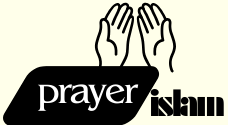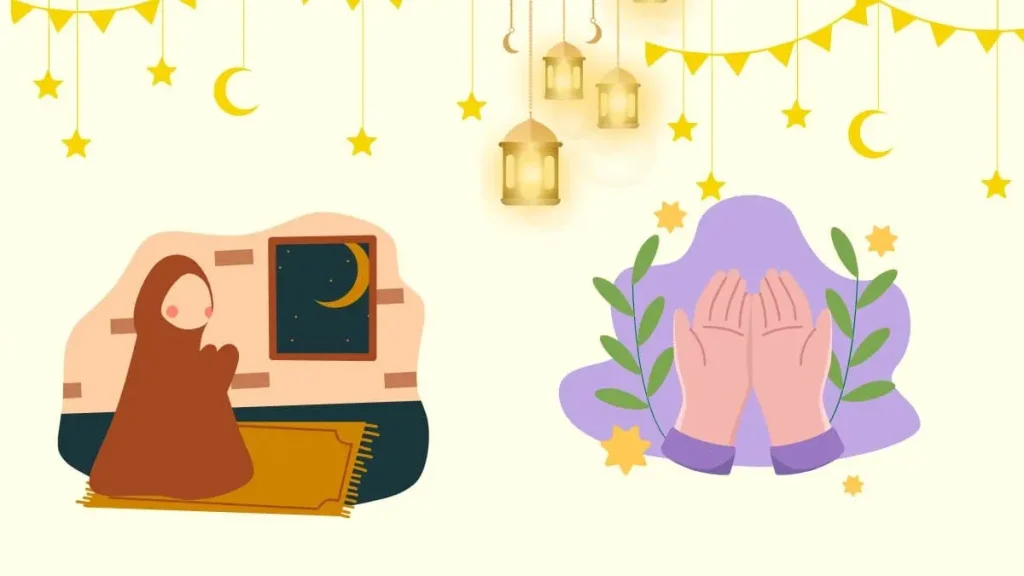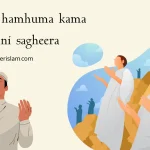There are several types of prayer in Islam. Fard, Wajib and Sunnah prayers. You have come to my website; what is essentially Sunnah prayer? To gain knowledge about it.
I welcome you. Many people do not have proper knowledge about Sunnah prayers, andy do not take any steps to gain knowledge about it.
You are not among them but have shown interest in learning about Sunnah prayer with your valuable time and effort and come to our platform.
I assure you that in this blog post, what is the Sunnah prayer? What are the benefits of Sunnah prayers? I will discuss them in detail.
What is sunnah?
Sunnah or sunnah means path or way. In terminology, all the actions prescribed by the Prophet (PBUH) as Islamic Shari’ah are called Sunnah. All the actions that the Holy Prophet (PBUH) himself is doing or what he has ordered or approved to do are called Sunnah.
What are the sunnah prayers?
Sunnah prayers are those prayers that Rasulullah – may Allah bless him and grant him peace – used to perform in addition to the obligatory prayers. Sunnah prayers generally mean all prayers other than the mandatory 17 rak’ah daily.
The number of Sunnah prayers is not limited to these daily Sunnah prayers. Apart from these, there are many Sunnah prayers. For example: Tahiyatul ablution, Tahiyatul Masjid, solar and lunar eclipse prayers. It should be noted here that just as the obligatory and Witr prayers were offered by the Prophet (PBUH) at the command of Allah, similarly, the Sunnah prayers were provided by the Prophet (PBUH) at the command of Allah.
How many types of Sunnah prayers?
There are two types of Sunnah prayer.
- Sunnah Muaqqadah
- Sunnah Zaydah or Muakkadah outside
He never missed the prayers that Rasulullah (S.A.W.) used to perform regularly except for special needs. Such prayers are called Muaqqadah in the Sunnah.
And non-Sunnah Muaqada prayers are those that Rasulullah (SAW) did not perform regularly. Rabang used to pay sometimes.
What is the sin of not praying Sunnah?
According to pure opinion, abandoning the Sunnah Mu’akkadah for any reason is not a sin, And it will be a sin to leave the Sunnah Muakkadah prayer continuously for no reason. On the other hand, abandoning the Muakkadah prayer, which is not according to the Sunnah, is not a sin according to anyone. But for a sincere and righteous believer, it is necessary not to abandon the Sunnah prayer.
What is the difference between Sunnah and Nafal prayers?
Nafal prayers are extra prayers which are not obligatory. Muslims do it voluntarily. No instructions were given by the Prophet (PBUH) to perform it. For example, you observe an extra fast.
The Sunnah is the prayer for which guidance has been received from the Prophet (peace be upon him). Or the Prophet (PBUH) himself did this—Tahajjud prayer.
Why should I pray, Sunnah?
On the Day of Resurrection, the Sunnah prayer will replace the obligatory prayer. If a person is deficient in the obligatory prayers, then the Sunnah prayers will compensate for that deficiency. So, I will pray more and more Sunnah prayers.
And all worship should be done for the pleasure of Allah Ta’ala. So, the Sunnah prayer should be read for the enjoyment of Allah. The Messenger of Allah ﷺ used to perform five Rakat sunnah prayers regularly before and after the five obligatory prayers and did not leave them without any particular reason.
What is the benefit of Sunnah prayer?
The benefits of Sunnah prayer are immense. Because the servant gets closest to Allah Ta’ala through prostration. Therefore, nafl prayers are the only way to approach Allah apart from obligatory prayers. So, no intelligent believer can leave these Sunnahs at will.
Apart from this, there is a hadith about the usefulness of Sunnah prayer; Aisha Radiyallahu Anha said,
The Messenger of Allah ﷺ said, “Whoever gets used to performing rakat (Sunnat Mu’akkadah) day and night, Allah will make a house for him in Paradise.
Four Rakats before the Zuhr obligatory prayer, two Rakats after the Zuhr obligatory prayer, two Rakats after the Maghrib obligatory prayer, two Rakats after the Isha obligatory prayer, and two Rakats after the Fajr obligatory prayer. (Sunan Nasa’i 1795)
Sunnah hadith about prayers
In a hadith about Sunnah prayer, Umm Habiba (R.A.) said, Rasulullah (S.A.W.) said, “A house will be built in Paradise for a person who prays 12 Rakats day and night.” Four Rakat before Zuhr. After two Rakats. Two Rakat after Maghrib. Two rakats after Isha. Two Rakat before Fajr.’ (Tirmidhi, Hadith: 6362)
So (during reckoning) if there is a deficiency in the obligatory prayers, Allah Ta’ala will say to the angels, ‘Look, does my servant have any nafal (prayer).’ Then the account of another period will be accepted.’ -(Sunan Abu Dawud, 770, Tirmidhi, 337, Ibn Majah, 117)
Importance of Sunnah prayers in Islam
It has been said about the importance of Sunnah prayer that if there is a deficiency in one’s obligatory prayer on the Day of Judgment, Allah will fill that deficiency with this prayer.
The Prophet (peace and blessings of Allah be upon him) said, “On the Day of Resurrection, the first deed that will be counted from the servant is the prayer.” If the prayer is correct, he will get salvation and success. Otherwise (if the prayer is invalid), it is destroyed and damaged.
Five daily prayers are obligatory. Following this law correctly will make you pleased with Allah and the good news of eternal Paradise. It is said in the Holy Qur’an, “Successful indeed are the believers, those who are humble in prayer.” – (Surat al-Mu’minun, verse 23)
Conclusion
If one does not perform the Sunnah prayer, he will not be guilty of sin. But he will be deprived of great virtues because there is a hadith of virtues from the Prophet (PBUH) about every Sunnah prayer.
Therefore, a person who abandons the Sunnah prayer, even if he is not a sinner, will be deprived of its benefits. Therefore, everyone should be careful to perform obligatory prayers.
In addition, particular importance should be given to the following Sunnah prayers before each prayer. Because although performing the Sunnah prayer is not obligatory, it has specific significance.
Frequently Asked Questions
When does Sunnah pray to pray?
Sunnah prayers are regularly performed before and after some obligatory prayers. However, apart from obligatory prayers, Sunnah prayers such as Tahajjud, Salatul Istikhara, etc., can be offered.
can Sunnah prayer be prayed at any time of the day
Yes, Sunnah prayer can be provided at any time of the day. However, certain Sunnah prayers must be read at specific times. Moreover, others can be done at any time or night.
When the Sunnah prayer can not be prayed?
Sunnah prayer cannot be offered at three special times, namely at sunrise, sunset, and when the sun is precisely in the mid sky. Rasulullah Sallallahu Alaihi Wasallam has forbidden any prayer during these three times.
How does the Sunnah prayers benefit a Muslim?
Sunnah prayers offer numerous spiritual benefits, including increased closeness to Allah, the forgiveness of sins, and opportunities for additional prayers. It helps to maintain a consistent connection with prayer throughout the day.
Can Sunnah prayer be prayed in the congregation?
No, Sunnah prayer cannot be offered in the congregation because the Sunnah prayer must be read alone. However, Tarabi and Qiyamul Lail can be recited in Ramzan. However, it is obligatory to perform obligatory prayers in congregations in mosques.
Can the sunnah prayer be performed if you run away?
It is unnecessary to perform the Sunnah prayer like the obligatory one, and there is no obligation to complete it if it is omitted. However, if a person wishes, if the Sunnah prayer is rushed, he can perform it later.
Is there a difference in Sunnah prayer between different schools?
Yes, there are slight variations in the Sunnah prayer between Islamic schools of thought. Following one’s thoughts or consulting a wise scholar for guidance is advisable.







